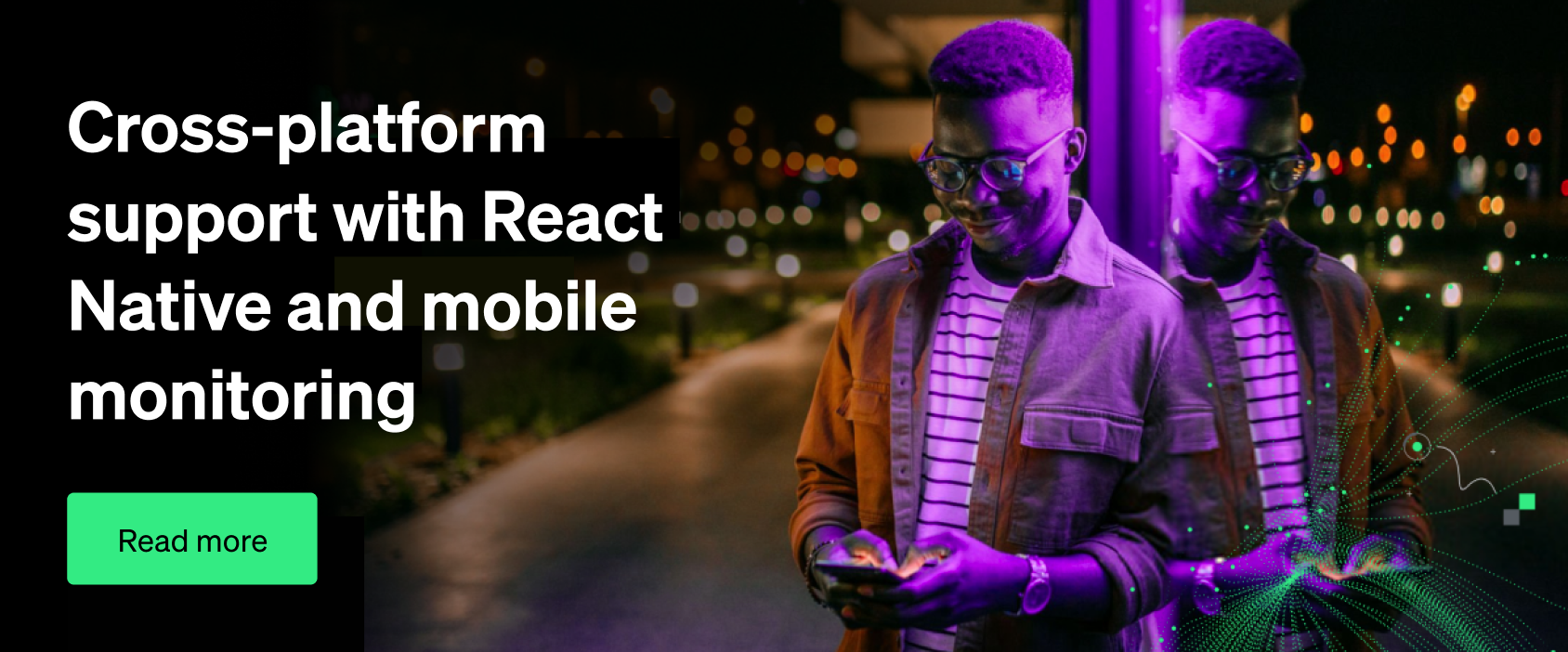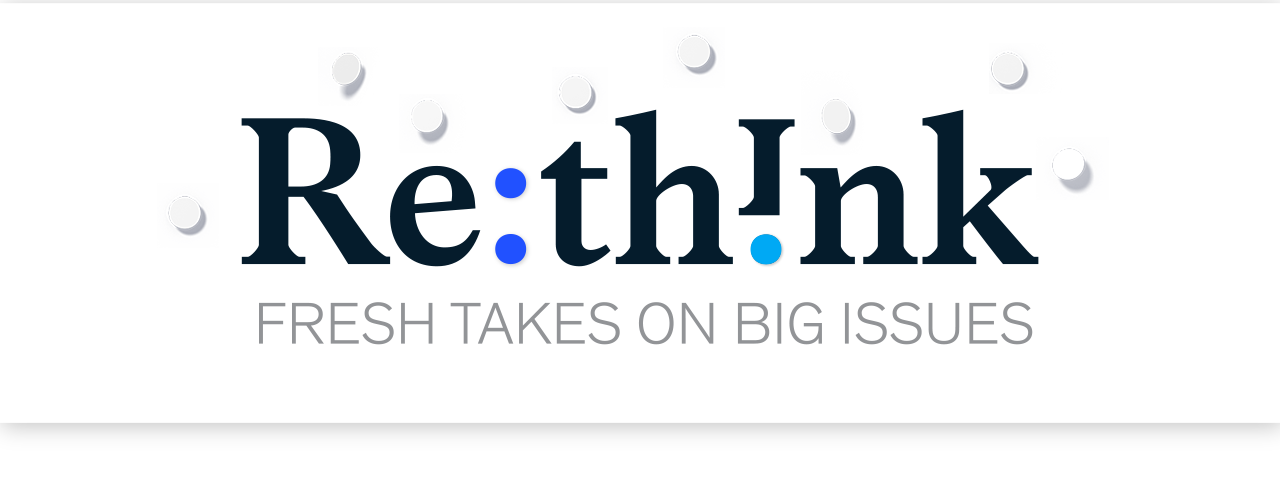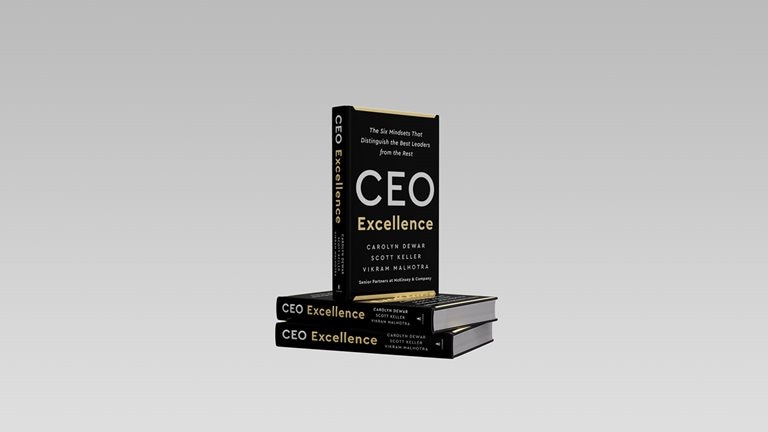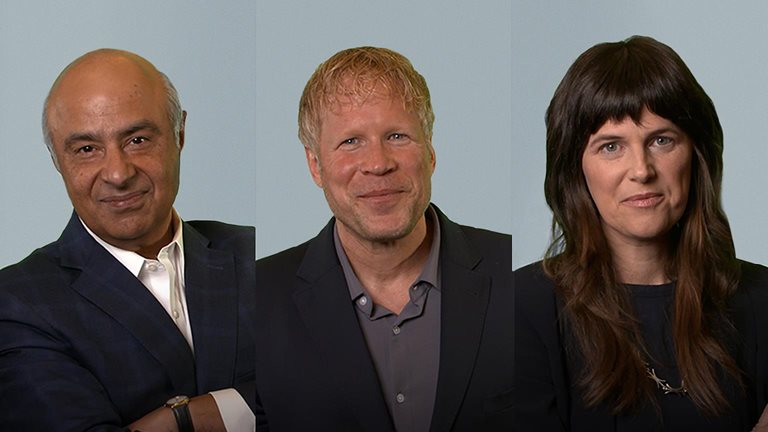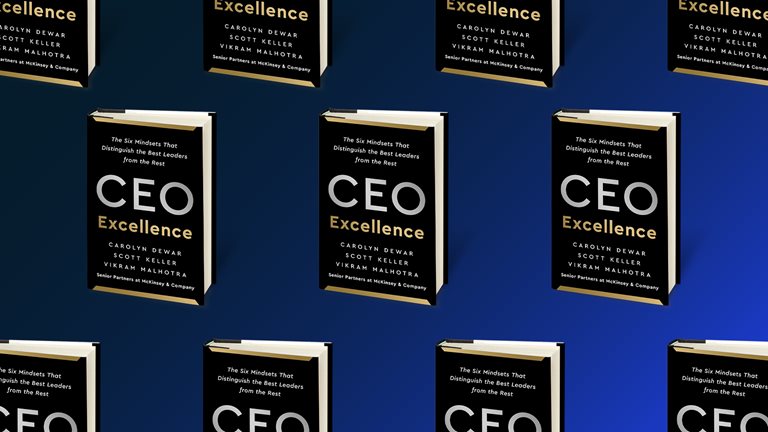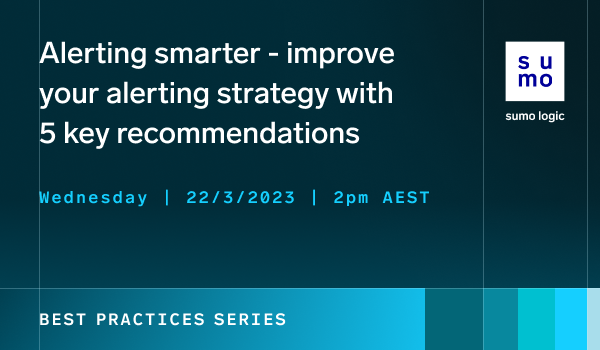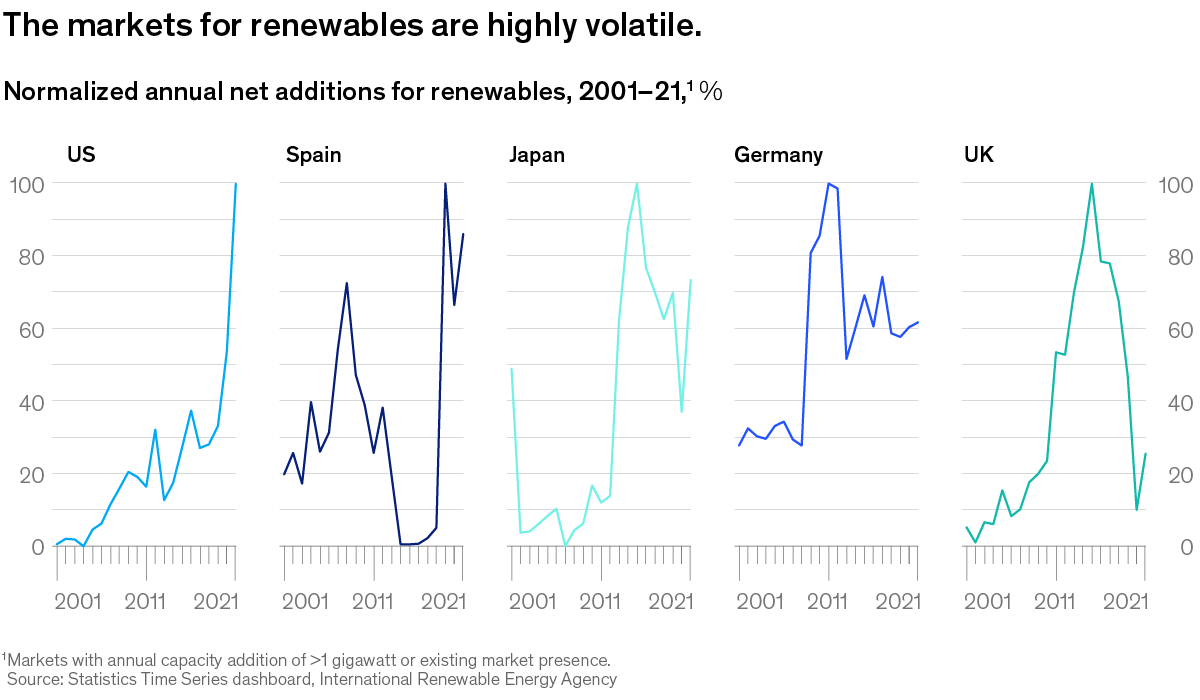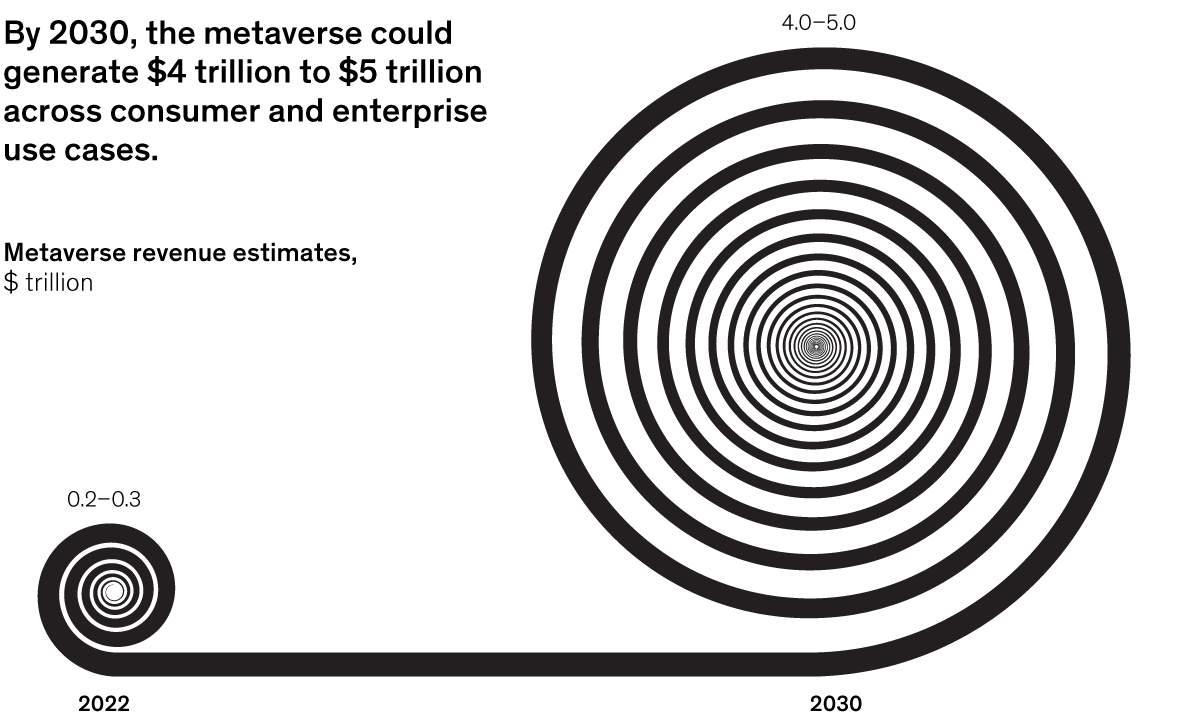Archives
- By thread 5226
-
By date
- June 2021 10
- July 2021 6
- August 2021 20
- September 2021 21
- October 2021 48
- November 2021 40
- December 2021 23
- January 2022 46
- February 2022 80
- March 2022 109
- April 2022 100
- May 2022 97
- June 2022 105
- July 2022 82
- August 2022 95
- September 2022 103
- October 2022 117
- November 2022 115
- December 2022 102
- January 2023 88
- February 2023 90
- March 2023 116
- April 2023 97
- May 2023 159
- June 2023 145
- July 2023 120
- August 2023 90
- September 2023 102
- October 2023 106
- November 2023 100
- December 2023 74
- January 2024 75
- February 2024 75
- March 2024 78
- April 2024 74
- May 2024 108
- June 2024 98
- July 2024 116
- August 2024 134
- September 2024 130
- October 2024 141
- November 2024 171
- December 2024 115
- January 2025 216
- February 2025 140
- March 2025 220
- April 2025 233
- May 2025 239
- June 2025 303
- July 2025 38
-
Company Insights: Artificial Intelligence
Company Insights: Artificial Intelligence 0.7.4
Dear MD Abul, Artificial intelligence is often viewed with skepticism when it comes to societal change. On the business side however, the technology boosts competitive advantages and innovation.
On March 30, Maike Schlumbohm, Director of Company Insights at Statista, will share crucial insights into the recent developments in artificial intelligence and its impact on companies. The 30-minute webinar will additionally focus on:- Market size and growth of artificial intelligence
- Generative AI market highlighting the current hype of ChatGPT
- Impact of artificial intelligence on companies and society
Statista GmbH, Johannes-Brahms-Platz 1, 20355 Hamburg
Representatives: Dr. Friedrich Schwandt, Hubert Jakob
Domicile: Cologne | HRB 87129 | municipal court of Cologne
You are registered with the following email address: info@learn.odoo.com
Manage newsletter preferences | Unsubscribe from all newsletters
Information about the timing of deleting personal data, the countries where we save data (e.g., U.S., EU, UK, Singapore), and the companies we collaborate with can be found in our privacy statement.
by "Statista | Webinars" <webinars@statista.com> - 10:05 - 16 Mar 2023 -
6.6 billion smartphone users. Are you prepared to monitor that?
New Relic
 Currently, there are more than 6.6 billion smartphone users in the world, roughly equivalent to 83.4% of the world’s population.
Currently, there are more than 6.6 billion smartphone users in the world, roughly equivalent to 83.4% of the world’s population.
Smartphones have revolutionized the way companies advertise, communicate, and most importantly, interact with their consumers by way of mobile applications. And those consumers prefer using apps on iOS or Android devices. But it isn’t always easy to replicate a desired mobile application on another platform.
Developers need to keep up with the times and in our blog post, you can learn how to monitor your iOs and Android apps built with React Native.
Read more Need help? Let's get in touch. 

 This email is sent from an account used for sending messages only. Please do not reply to this email to contact us—we will not get your response.
This email is sent from an account used for sending messages only. Please do not reply to this email to contact us—we will not get your response.View in browser
This email was sent to info@learn.odoo.com. Update your email preferences.For information about our privacy practices, see our Privacy Policy.
Need to contact New Relic? You can chat or call us at +353 (01) 687 6808.
New Relic, Inc. 31-36 Golden Ln, Dublin 8, D08 A5RV, Ireland.
© 2023 New Relic, Inc. All rights reserved. New Relic logo are trademarks of New Relic, Inc.
by "New Relic" <emeamarketing@newrelic.com> - 06:36 - 16 Mar 2023 -
White Label Tire Management Software
White Label Tire Management Software
Start your profitable GPS tracking business.A tire management software that handles all aspects of tire inventory, operation, and inspection.
Catch a glimpse of what our software has to offer

Reduce Vehicle Downtime
Identify tire issues early and minimize vehicle downtime with our tire management software

Increase Fleet Safety
Ensure vehicle safety by monitoring tire wear and pressure with our tire management software. Identify potential safety hazards and prevent accidents.

Manage Tire Stocks
You can easily upload tire stock details via an excel file and can check unused and used tire details on a single screen.
Learn how our tire management system can help your business grow
You may also be interested in

Uffizio Technologies Pvt. Ltd., 4th Floor, Metropolis, Opp. S.T Workshop, Valsad, Gujarat, 396001, India
by "Sunny Thakur" <sunny.thakur@uffizio.com> - 01:30 - 16 Mar 2023 -
Can US students recover from pandemic-related learning delays?
On Point
The important role US states play
by "McKinsey On Point" <publishing@email.mckinsey.com> - 12:54 - 16 Mar 2023 -
Log Analytics at Scale — The Best Way to Troubleshoot Faster
Sumo Logic
Troubleshoot and secure apps faster

Turn log data from foe to friend.
It has been said that "few things are as powerful, as frightening, as overwhelming and as important as data."
Learn more in our new guide Log analytics at scale that includes:
- Compare and contrast of log management and log analytics
- Use cases
- Benefits
- Best practices
- Recommendations to help your modern log solutions search
Learn more about Sumo Logic. The infinite power of log analytics.Sumo Logic, Level 9, 64 York Street, Sydney, NSW 2000
© 2023 Sumo Logic, All rights reserved.Unsubscribe 


by "Sumo Logic" <marketing-info@sumologic.com> - 09:00 - 15 Mar 2023 -
Learn
Good day!
Would you be interested in of PyCon US 2023 attendee contact lists?
If you're considering it, could I give you a quote? Also, please tell me who your target attendee is.
Attendees: Developers, Technologists, Programmers, Educators, Bloggers, Authors, Web Developers, CTOs, Managers, Entrepreneurs, Scientists, Engineers & Domain Experts and many more…
Kindly share your thoughts.
Sincerely,
Samantha Durfee| Events Data Specialist
by "Samantha Durfee" <samanthad@eventvisitorusa.com> - 03:34 - 15 Mar 2023 -
Why do some DEI initiatives work?
Re:think
A recipe for DEI success A lot of research tends to focus on the challenge side of diversity, equity, and inclusion (DEI): the manifestations and root causes of inequity. There’s been less research, however, on the solution side, on “What does it take to make progress on DEI?” So, in partnership with the World Economic Forum, we created the Global Parity Alliance, and looked for lighthouse examples of companies that had made progress, and to see if lessons from those companies can be applied elsewhere.
What we found is that there is a recipe, with five success factors as the key ingredients, for driving successful DEI initiatives—but that there is no recipe for which initiatives work best across the board. That’s because context is key. In fact, the first success factor is to gain a nuanced understanding of root causes.
Often, companies don’t approach DEI the same way they approach other aspects of business strategy. They often underinvest time and effort to deeply understand the problem they’re trying to solve. Instead, companies will launch initiatives because they saw, say, a mentorship program succeed somewhere else, and they say, “Let’s launch that here.” In a rush, often because of good intentions and an eagerness and desire to show employees that they’re “doing something,” companies might skip that step of really understanding exactly what the problem is that they’re trying to solve.
So while an early-career mentoring program for women sounds innately appealing, when you ask the company to really dig into its data, it may be that women are actually advancing just fine early in their careers. The problems are at other points along the pipeline. Perhaps sponsorship of midcareer women is more important, or perhaps the company should be looking to root out bias in the review process. The initiatives that are most successful are ones in which the companies spent the time up front to really understand, “What is the problem we’re trying to solve?” and “What are the root causes for why the needle is stuck?”
The second success factor, “a meaningful definition of success,” goes hand in hand with the first. The most successful initiatives understand both the problem they’re trying to solve and what success will look like once they’ve solved it. They have a real understanding of “Where are we today?” and “Why are we here?” and “Where are we trying to go?” This isn’t rocket science—these are the keys to attacking most business problems. But, again, many DEI initiatives don’t start with these basic business fundamentals.“Often, companies don’t approach DEI the same way they approach other aspects of business strategy.”
The third success factor is “accountable and invested business leaders.” Senior leadership’s commitment and accountability are necessary for a successful DEI initiative. And if the initiative requires changing a set of practices across the company, you’ll need a broader set of committed business leaders. Role modeling is important. This is a topic where a lot of people can be skeptical, and they need to see that leaders are personally making changes in line with the new way of working suggested by the initiative. Furthermore, leaders must be prepared to devote themselves, and the company’s resources, over time. Many successful DEI initiatives needed substantial time to get to the desired outcome. Some may not move the needle meaningfully for a year or more. But that time isn’t wasted. You’re laying the foundation to attack a complex problem that may have vexed the company for decades. And since these problems tend to be quite hard, it’s best not to try to tackle everything all at once. The “let a thousand flowers bloom” approach to DEI is a recipe for failure.
The fourth factor is “a solution designed for context.” Strong initiatives seek a fit-for-purpose solution. They build on a nuanced understanding of the starting place, the root causes, and a clear view of success, and they are strategically designed to address the issues. Sometimes this can mean launching a new effort or intervention, but often this means changing a variety of things that already exist, such as policies, processes, or learning and development programs.
The final success factor is “rigorous tracking and course correction.” Many companies don’t do this with DEI. For instance, they don’t define the specific leading indicators and ultimate outcomes that they hope the initiative will change—and thus, they don’t have the data to discuss if it’s working, how it might be improved, or if the results can be accelerated. It’s one thing to be able to cite the number of people who took part in an initiative, but it’s far more meaningful to be able to track details like “people who participated in the program were promoted twice as often as those who did not,” or “participants stayed with the company at a 40 percent higher rate.” Here, too, you need to be patient. There’s going to be a period of time where you see more progress on the leading indicators than you do on the ultimate outcomes that you’re trying to achieve. But if you stick with it and start to see a real ROI, it becomes easier to commit for the long run—and getting DEI right is definitely a project for the long run.ABOUT THE AUTHOR
MORE FROM THIS AUTHOR
UP NEXTJen Henry on the restaurant industry
Restaurants are facing unprecedented challenges, including labor shortages and soaring ingredient costs. New ideas and technological innovations could help keep customers, employees, and owners well-fed.
This email contains information about McKinsey’s research, insights, services, or events. By opening our emails or clicking on links, you agree to our use of cookies and web tracking technology. For more information on how we use and protect your information, please review our privacy policy.
You received this email because you subscribed to our McKinsey Quarterly alert list.
Copyright © 2023 | McKinsey & Company, 3 World Trade Center, 175 Greenwich Street, New York, NY 10007
by "McKinsey Quarterly" <publishing@email.mckinsey.com> - 03:11 - 15 Mar 2023 -
Here’s what the best CEOs do differently
Harmony Internal - McKinsey
CEO Excellence: One year later Brought to you by Liz Hilton Segel, chief client officer and managing partner, global industry practices, & Homayoun Hatami, managing partner, global client capabilities
New from McKinsey & Company
One year ago today, senior partners Carolyn Dewar, Scott Keller, and Vik Malhotra released their book CEO Excellence: The Six Mindsets That Distinguish the Best Leaders from the Rest. Today, as leaders grapple with a lifetime’s worth of disruption and crises—including fraught global dynamics, mounting economic woes, and digital trends—the role of the chief executive is more crucial than ever. Check out these insights to dive into the mindsets that set the best leaders apart, and revisit learnings from the #CEOExcellenceBook, now on The New York Times and Wall Street Journal bestseller lists, for frank, in-depth interviews with 67 of the world’s best CEOs.
MORE FROM MCKINSEY
To see more essential reading on topics that matter, visit McKinsey Themes.
— Edited by Eleni Kostopoulos, managing editor, New York
Share these insights
This email contains information about McKinsey’s research, insights, services, or events. By opening our emails or clicking on links, you agree to our use of cookies and web tracking technology. For more information on how we use and protect your information, please review our privacy policy.
You received this email because you subscribed to our McKinsey Quarterly alert list.
Copyright © 2023 | McKinsey & Company, 3 World Trade Center, 175 Greenwich Street, New York, NY 10007
by "McKinsey & Company" <publishing@email.mckinsey.com> - 12:44 - 15 Mar 2023 -
What is leadership?
On Point
How leadership is evolving Brought to you by Liz Hilton Segel, chief client officer and managing partner, global industry practices, & Homayoun Hatami, managing partner, global client capabilities
• How effective leaders behave. Leaders enable groups of people to work together to accomplish what each couldn’t do individually. According to McKinsey analysis of academic literature and a survey of 189,000 people in 81 organizations around the world, four types of behavior account for 89% of leadership effectiveness. These are being supportive, operating with a strong orientation on results, seeking different perspectives, and solving problems effectively, explain McKinsey senior partner Ramesh Srinivasan and colleagues.
— Edited by Belinda Yu, editor, Atlanta
This email contains information about McKinsey's research, insights, services, or events. By opening our emails or clicking on links, you agree to our use of cookies and web tracking technology. For more information on how we use and protect your information, please review our privacy policy.
You received this email because you subscribed to the On Point newsletter.
Copyright © 2023 | McKinsey & Company, 3 World Trade Center, 175 Greenwich Street, New York, NY 10007
by "McKinsey On Point" <publishing@email.mckinsey.com> - 10:06 - 14 Mar 2023 -
5 key recommendations to improve your alerting strategy
Sumo Logic
Are your Best Practices the best they can be?
 When your SRE team is consuming valuable time and resources troubleshooting, the customer’s digital experience suffers. False positive alerts continue to cause real issues to be missed, downtime and decreased reliability.
When your SRE team is consuming valuable time and resources troubleshooting, the customer’s digital experience suffers. False positive alerts continue to cause real issues to be missed, downtime and decreased reliability.
Sumo Logic product experts as they share 5 key recommendations to reduce alert noise and detect real issues efficiently.- Choose what to measure
- Choose how to measure
- Decide who responds to alerts
- Decide where to route alerts
- Tune your alerts
Sumo Logic, Level 9, 64 York Street, Sydney, NSW 2000
© 2023 Sumo Logic, All rights reserved.Unsubscribe 


by "SumoLogic" <marketing-info@sumologic.com> - 09:01 - 14 Mar 2023 -
ลงทะเบียน! ร่วมงานเทคโนโลยีอุตสาหกรรม ชไนเดอร์ อิเล็คทริค
Schneider Electric
Innovation Day:
Industrial Solutions, Chon Buri 2023ชไนเดอร์ อิเล็คทริค ร่วมกับ กรมส่งเสริมอุตสาหกรรมและการนิคมอุตสาหกรรมแห่งประเทศไทย จัดงานเทคโนโลยีอุตสาหกรรม สำหรับกลุ่มโรงงาน เพิ่มประสิทธิภาพด้านการปฏิบัติการ ยกระดับโรงงาน ก้าวทันโลกดิจิทัล
ไฮไลท์สำคัญ
- เร่งเครื่องยกระดับอุตสาหกรรมไทยไปสู่ยุค IIoT จากกรมส่งเสริมอุตสาหกรรมฯ
- กลยุทธ์การพัฒนาโครงสร้างพื้นฐานสำคัญในอุตสาหกรรม เพิ่มความปลอดภัย ความน่าเชื่อถือ ประสิทธิภาพ ความยั่งยืน
- ยกระดับภาคการผลิตในอุตสาหกรรม 4.0 ด้วยเทคโนโลยีอันสมัย
- การบริการด้านการจัดระบบไฟฟ้าเชิงรุก วิเคราะห์ คาดการณ์ ลดดาวน์ไทม์ ยุคดิจิทัล
 วันและเวลาวันที่ 23 มี.ค. 2566
วันและเวลาวันที่ 23 มี.ค. 2566
เวลา 8:30-16:00 น. สถานที่จัดกิจกรรมห้อง The Tee พัฒนากอล์ฟคลับ แอนด์ รีสอร์ท จ.ชลบุรี
สถานที่จัดกิจกรรมห้อง The Tee พัฒนากอล์ฟคลับ แอนด์ รีสอร์ท จ.ชลบุรี+ Lifecycle Services From energy and sustainability consulting to optimizing the life cycle of your assets, we have services to meet your business needs. Schneider Electric
46 Rungrojthanakul Building. 1st, 10th, 11th Floor, Ratchadapisek Road. Huaykwang
Bangkok - 10310, Thailand
Phone +662 617 5555© 2023 Schneider Electric. All Rights Reserved. Schneider Electric is a trademark and the property of Schneider Electric SE, its subsidiaries and affiliated companies. All other trademarks are the property of their respective owners.
by "Schneider Electric" <reply@se.com> - 09:01 - 14 Mar 2023 -
Why typecasting can cloud good decision making
Harmony Internal - McKinsey
Address the bias Brought to you by Liz Hilton Segel, chief client officer and managing partner, global industry practices, & Homayoun Hatami, managing partner, global client capabilities
At work and in life in general, we often make assumptions about people based on their socially defined roles, such as a parent, a manager, or a teacher. This adherence to role theory, a cognitive bias, can cloud our decision making, according to McKinsey’s Eileen Kelly Rinaudo, Tim Koller, and Derek Schatz in a new Bias Busters article from McKinsey Quarterly. We’re all unique individuals, and we have to remember that our actions and motivations can be informed by lots of other things besides our socially designated roles. Check it out for more on the perils of executive typecasting and what organizations can do to address it.
Quote of the day
—Ginni Rometty, former chairman, president, and CEO of IBM and the cofounder and cochair of OneTen, on why she thinks growth and comfort cannot coexist in a recent Author Talks interview
Chart of the day
ALSO NEW
— Edited by Joyce Yoo, editor, New York
Share these insights
Did you enjoy this newsletter? Forward it to colleagues and friends so they can subscribe too. Was this issue forwarded to you? Sign up for it and sample our 40+ other free email subscriptions here.
This email contains information about McKinsey’s research, insights, services, or events. By opening our emails or clicking on links, you agree to our use of cookies and web tracking technology. For more information on how we use and protect your information, please review our privacy policy.
You received this email because you subscribed to our McKinsey Quarterly alert list.
Copyright © 2023 | McKinsey & Company, 3 World Trade Center, 175 Greenwich Street, New York, NY 10007
by "McKinsey Daily Read" <publishing@email.mckinsey.com> - 05:04 - 14 Mar 2023 -
How William Hill boosts revenue and digital business growth using New Relic
New Relic
 During the Grand National, William Hill had a direct hotline to New Relic in case they needed exceptional support during peak traffic. Yet, William Hill stayed stable and continued to ingest data, with no failures or downtime.
During the Grand National, William Hill had a direct hotline to New Relic in case they needed exceptional support during peak traffic. Yet, William Hill stayed stable and continued to ingest data, with no failures or downtime.
With New Relic’s all-in-one approach, William Hill was able to have:- 35% lower detection time
- 30% lower resolution time
- 60% reduction in alert noise.
Find out more in our blog post on how William Hill boosts revenue and digital business growth with New Relic.
Read the Blog Need help? Let's get in touch. 

 This email is sent from an account used for sending messages only. Please do not reply to this email to contact us—we will not get your response.
This email is sent from an account used for sending messages only. Please do not reply to this email to contact us—we will not get your response.View in browser
This email was sent to info@learn.odoo.com. Update your email preferences.For information about our privacy practices, see our Privacy Policy.
Need to contact New Relic? You can chat or call us at +353 (01) 687 6808.
New Relic, Inc. 31-36 Golden Ln, Dublin 8, D08 A5RV, Ireland.
© 2023 New Relic, Inc. All rights reserved. New Relic logo are trademarks of New Relic, Inc.
by "New Relic" <emeamarketing@newrelic.com> - 06:36 - 14 Mar 2023 -
Fuel Monitoring Software which works with various industries
Fuel Monitoring Software which works with various industries
White Label Fuel Monitoring Software
Revolutionize the way your industry manages fuel usage with our cutting-edge fuel monitoring software.
Use cases across industries

Tanker Trucks
Tankers are often used to transport fuel. 53% of tanker truck overseers have reported the theft of fuel during transit. Such thefts can affect your business’s bottom line and dip your profits. To avoid this, use a fuel monitoring solution for petrol and diesel transfer.

Diesel Generator
Monitor the consumption of diesel in your DG set. You can track run hours, refills, and battery voltage. Also receive notifications for generator overheating, low fuel levels, or a sudden decrease in fuel levels.

Marine Fleets
Get accurate fuel sensor data, even when your ship is at a distant sea. Experience zero data gaps. Monitor multiple tanks at the same time and get notifications for fuel theft.
Discuss your usecase get your business growing

Uffizio Technologies Pvt. Ltd., 4th Floor, Metropolis, Opp. S.T Workshop, Valsad, Gujarat, 396001, India
by "Sunny Thakur" <sunny.thakur@uffizio.com> - 12:30 - 14 Mar 2023 -
Brain health conditions are pervasive. How can society reclaim healthy years of life?
On Point
Research from the McKinsey Health Institute Brought to you by Liz Hilton Segel, chief client officer and managing partner, global industry practices, & Homayoun Hatami, managing partner, global client capabilities
• Lost years. Brain health affects every person’s life. Mental and substance-use disorders are highly treatable and often preventable. Yet these conditions remain common worldwide, with nearly one in eight people having a mental disorder before the COVID-19 pandemic, explain McKinsey senior partner Martin Dewhurst and coauthors. The associated burden of brain health conditions contributes an added 150 million lost years globally, analysis by the McKinsey Health Institute and the Healthy Brains Global Initiative collaboration finds.
— Edited by Belinda Yu, editor, Atlanta
This email contains information about McKinsey's research, insights, services, or events. By opening our emails or clicking on links, you agree to our use of cookies and web tracking technology. For more information on how we use and protect your information, please review our privacy policy.
You received this email because you subscribed to the On Point newsletter.
Copyright © 2023 | McKinsey & Company, 3 World Trade Center, 175 Greenwich Street, New York, NY 10007
by "McKinsey On Point" <publishing@email.mckinsey.com> - 12:13 - 14 Mar 2023 -
Scaling green businesses: Next moves for leaders
Harmony Internal - McKinsey
3 areas of action Brought to you by Liz Hilton Segel, chief client officer and managing partner, global industry practices, & Homayoun Hatami, managing partner, global client capabilities
What’s next for green businesses? While decarbonization efforts including electric vehicles, wind and solar power, and green hydrogen have been notable, more needs to be done to meet net-zero targets. In a new article, McKinsey’s Rob Bland, Laura Corb, Anna Granskog, Tomas Nauclér, and Giulia Siccardo lay out three actions green business builders can take as they navigate an uncertain economic and geopolitical environment. See why building up supply chains, addressing the skills gap, and exploring different avenues for financing and investments could make a difference in the path to a net zero future.
Quote of the day
—Ingrid Johnson, president of Sun Life Asia, on how insurance can help make societies in Africa and Asia more resilient in “Building purpose-led businesses: An interview with Ingrid Johnson”
Chart of the day
ALSO NEW
— Edited by Joyce Yoo, editor, New York
Share these insights
Did you enjoy this newsletter? Forward it to colleagues and friends so they can subscribe too. Was this issue forwarded to you? Sign up for it and sample our 40+ other free email subscriptions here.
This email contains information about McKinsey's research, insights, services, or events. By opening our emails or clicking on links, you agree to our use of cookies and web tracking technology. For more information on how we use and protect your information, please review our privacy policy.
You received this email because you subscribed to the Daily Read newsletter.
Copyright © 2023 | McKinsey & Company, 3 World Trade Center, 175 Greenwich Street, New York, NY 10007
by "McKinsey Daily Read" <publishing@email.mckinsey.com> - 06:39 - 13 Mar 2023 -
Use your imagination: A leader’s guide to scenario planning
Harmony Internal - McKinsey
Picture this Brought to you by Liz Hilton Segel, chief client officer and managing partner, global industry practices, & Homayoun Hatami, managing partner, global client capabilities
The Titanic was deemed ‘unsinkable’ before it hit an iceberg. Technology and forecasting techniques have advanced considerably since that 1912 disaster. Yet leaders still struggle to cope in a world where catastrophes are increasingly more frequent, more severe, and more far-reaching in their impact. While no organization can anticipate all disruptions, the pandemic and its aftershocks have revived the value of scenario planning, a time-honored exercise that now requires a higher degree of senior-leadership involvement than has traditionally been the case. Here are some creative ways to scan the horizon for high-consequence, low-probability events that could seriously damage your organization.
“Scenario planning is squarely back,” assert McKinsey’s Andrew Grant, Ziad Haider, and Anke Raufuss in their article on how companies should prepare for the so-called black swans, gray rhinos, and other disruptions that characterize geopolitical events today. “The imperative to lift one’s gaze and look around the corner has become key to strategy and performance,” they say, advocating that leaders develop a deeper level of strategic foresight and creative thinking than was necessary in earlier, more stable times. This may involve “reperceiving” events through multiple lenses when scanning for scenarios, as well as looking for “silver linings”—openings amid turmoil that allow organizations to operate safely and potentially gain competitive advantage. “Leaders within multinational corporations also are reflecting on appropriate ways to inform policy in a more polarized geopolitical environment,” the authors add. “An organization should . . . consider how to employ its voice.”
That’s the number of key scenarios we have developed that CEOs and their teams may want to consider for 2023 and beyond, as discussed in this article by McKinsey senior partner Michael Birshan and coauthors. Two scenarios depict a range of possible outcomes and GDP growth rates, while the third offers a more pessimistic outlook reminiscent of the economic conditions of the 1970s. Working with these scenarios can “help executive teams build shared conviction about their operating and competitive environment,” the authors suggest. “Consequently, [they can] act more decisively when it’s time to commit, be bold, and accelerate execution; or hold back, remain agile, and preserve optionality. These scenarios can help provide the foresight that can improve the odds of success.”
That’s McKinsey partner Bernardo Sichel and colleagues on how to get past the many cognitive biases that can undermine scenario planning. For example, people may base decisions on what they already know (availability bias) or assume that the future will look just like the past (stability bias). With their natural bias toward stability, leaders may tend to outsource scenario creation to junior team members or external vendors—a “problematic” situation, in the authors’ view, “because when senior leaders aren’t part of the process of developing scenarios, they are less likely to make sense of or act on them.” Rather than hanging back, leaders need to be at the forefront of scenario planning, instilling the idea of change, establishing processes to counter bias, and encouraging the habit of thinking the unthinkable.
As geopolitical risks increase, companies are challenged to plan in a continually shifting environment. In an interview with McKinsey, top executives from three global organizations discuss their most pressing concerns, which include discordant relationships among countries, the growing prominence of government affairs, widespread disinformation, and the difficulty of staying ahead of current events. One executive emphasizes “the need to make sure, both in terms of how we run our company and how we sell things, that we really do look to have resiliency and redundancy, whether that’s in manufacturing, whether that’s in supply chain, or whether that’s in R&D.” Another leader fears an inconsistently regulated internet: “One thinks about all the benefits that have been derived from an integrated, free, interoperable internet over the past 15 to 20 years, and now look at this future of one that is a ‘splinter net,’ not an internet,” he says.
Lead by creating effective scenarios.
— Edited by Rama Ramaswami, senior editor, New York
Share these insights
Did you enjoy this newsletter? Forward it to colleagues and friends so they can subscribe too. Was this issue forwarded to you? Sign up for it and sample our 40+ other free email subscriptions here.
This email contains information about McKinsey’s research, insights, services, or events. By opening our emails or clicking on links, you agree to our use of cookies and web tracking technology. For more information on how we use and protect your information, please review our privacy policy.
You received this email because you subscribed to the Leading Off newsletter.
Copyright © 2023 | McKinsey & Company, 3 World Trade Center, 175 Greenwich Street, New York, NY 10007
by "McKinsey Leading Off" <publishing@email.mckinsey.com> - 02:10 - 13 Mar 2023 -
Test Smarter, Sleep Better With Design-First API Contract Testing: A Real-Life Scenario
SmartBear
Last Chance to Register!Webinar InvitationJoin us this week to dive deeper into the integration for enhanced API designing + testing! Imagine a world where you don’t have to wake up at 3 AM to fix an easily preventable API outage. Or one where you catch errors earlier in the cycle, rather than wait for others to confirm if your changes caused code to break.
Imagine a world where you don’t have to wake up at 3 AM to fix an easily preventable API outage. Or one where you catch errors earlier in the cycle, rather than wait for others to confirm if your changes caused code to break.
Join this webinar for an interactive walkthrough of design-first API contract testing - the solution to preventing API service outages.
Our poster boys for design-first API contract testing, Yousaf Nabi and Alex Bonstrom, will show you a real-life implementation of the SwaggerHub and PactFlow integration for your API provider and API consumer teams. Hope to see you there!
Hope to see you there!
P.S. Not sure to join? As a live attendee you'll find this format gives you a lot of value in a short amount of time - especially if you have questions. (You can catch the recording later, but potentially get a lot more out if you join us live.) Molly FarmerGrowth Marketing Manager, SmartBear
Molly FarmerGrowth Marketing Manager, SmartBear This email was sent to info@learn.odoo.com by SmartBear Software, 450 Artisan Way, Somerville, MA. 02145, 617684.2600, www.smartbear.com. We hope you found this email of interest. However, we value your privacy. If you do not wish to receive future correspondence from us, please click here to manage email preferences.
This email was sent to info@learn.odoo.com by SmartBear Software, 450 Artisan Way, Somerville, MA. 02145, 617684.2600, www.smartbear.com. We hope you found this email of interest. However, we value your privacy. If you do not wish to receive future correspondence from us, please click here to manage email preferences.
by "Molly from Smartbear" <swaggerhub-team@smartbearmail.com> - 01:36 - 13 Mar 2023 -
The global order is fragmenting. How can leaders anticipate geopolitical risks?
On Point
Black swans, gray rhinos, and silver linings Brought to you by Liz Hilton Segel, chief client officer and managing partner, global industry practices, & Homayoun Hatami, managing partner, global client capabilities
• What concerns CEOs. The global order is still reeling from disruptions related to the war in Ukraine. A central concern among global CEOs we have spoken with is whether and how they will contend with additional geopolitical ruptures when they occur, reveal McKinsey senior partner Andrew Grant and coauthors. Even as boards and CEOs work to build capabilities in managing risks and developing geopolitical resilience, looking around the corner has become key to strategy and performance. In other words, scenario planning is squarely back.
— Edited by Belinda Yu, editor, Atlanta
This email contains information about McKinsey's research, insights, services, or events. By opening our emails or clicking on links, you agree to our use of cookies and web tracking technology. For more information on how we use and protect your information, please review our privacy policy.
You received this email because you subscribed to the On Point newsletter.
Copyright © 2023 | McKinsey & Company, 3 World Trade Center, 175 Greenwich Street, New York, NY 10007
by "McKinsey On Point" <publishing@email.mckinsey.com> - 11:21 - 12 Mar 2023 -
The week in charts
The Week in Charts
The market value of metaverse activity, Black talent, and more Share these insights
Did you enjoy this newsletter? Forward it to colleagues and friends so they can subscribe too. Was this issue forwarded to you? Sign up for it and sample our 40+ other free email subscriptions here.
This email contains information about McKinsey's research, insights, services, or events. By opening our emails or clicking on links, you agree to our use of cookies and web tracking technology. For more information on how we use and protect your information, please review our privacy policy.
You received this email because you subscribed to The Week in Charts newsletter.
Copyright © 2023 | McKinsey & Company, 3 World Trade Center, 175 Greenwich Street, New York, NY 10007
by "McKinsey Week in Charts" <publishing@email.mckinsey.com> - 03:39 - 11 Mar 2023
